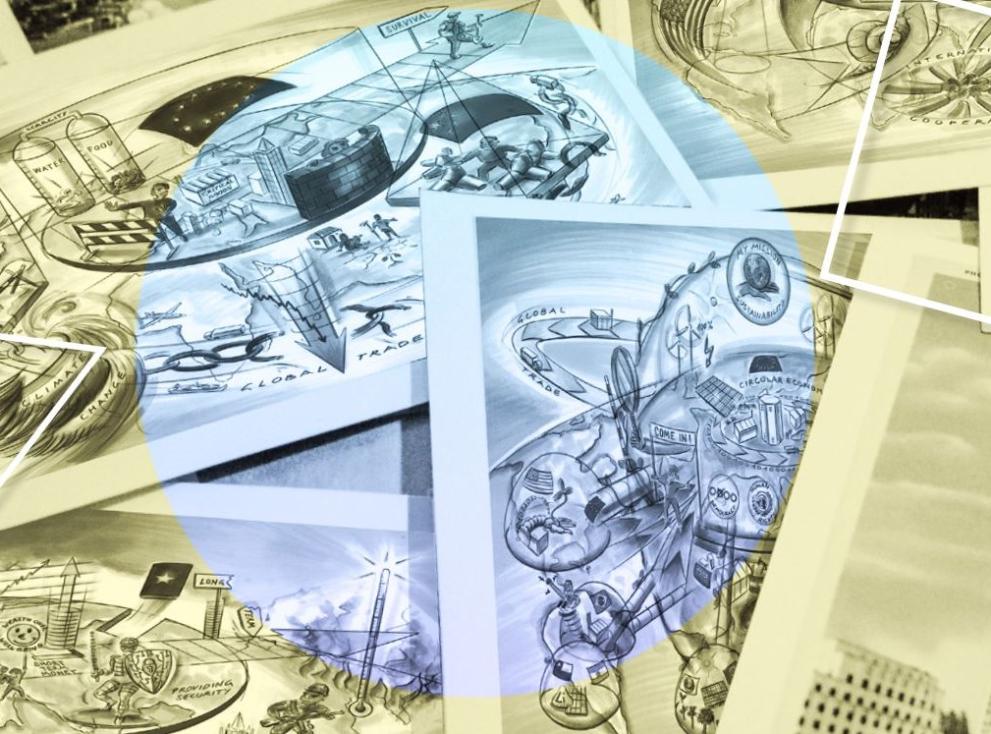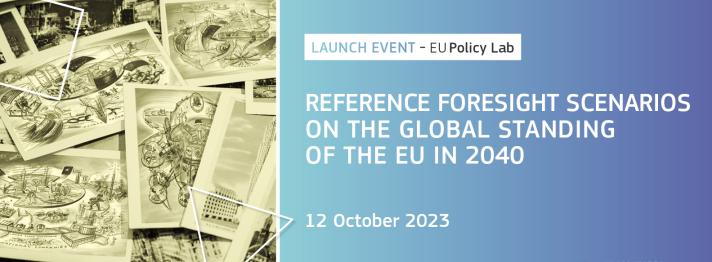
Here at the EU Policy Lab we have recently unveiled our latest foresight ace up our sleeve: Reference Foresight Scenarios that paint a vivid picture of how the world might look like in 2040.
But what are 'Reference' Foresight Scenarios?
Some demystification is needed: while the scenarios put forward in our latest report offer four plausible versions of how Europe may look like in 2040 and its global standing, they do not claim to predict or project how the future may look like. What they do offer, however, are strategic reflections which can serve as a compass for navigating through unchartered territories of turbulence, uncertainty, ambiguity and novelty for policymakers. These four geopolitical scenarios are called ‘Reference’ Scenarios because they represent a forward-looking framework that provides a reference for use in policymakers’ debates about potential futures.
Why are they important?
We created this set of scenarios with the goal to help EU decision-makers increase the preparedness of EU policies under increasingly unpredictable circumstances. They can serve as a safety net for EU policymakers walking the tightrope of uncertainty that is inherent to their work. Events from the past few years, such as the COVID-19 pandemic and the Russian invasion of Ukraine, have shown that being prepared for the unknown and the unexpected has become increasingly important.
How did we do it?
Crafting four, plausible versions of the future is no easy task. This is why we used the Oxford Scenario Planning Approach to develop them with the help of over 100 experts. Through this highly participatory process, spanning over two and a half years, we co-created, developed, validated, applied, and improved the scenarios’ narratives, trying to ensure their relevance and robustness.
Time to put them to work
Wondering how you can apply the fours Reference Scenarios to your work? We have already tested their use in several ways:
1. For stress-testing policies and policy proposals
In one of our participatory workshops, we used our reference scenarios to stress-test or wind-tunnel policy options of Standard Essential Patents. This process allows policymakers to determine whether a policy option would perform well under different and sometimes difficult circumstances and how to make them more robust across different plausible futures. Because it is easy to use, stress-testing can play an important role in policy development and support the EU’s Better Regulation Agenda.
2. For reflecting on future challenges and how they are linked
We have tested this approach of discussing potential policy implications of scenarios for the areas of food security and open strategic autonomy. By thinking systematically about future pathways, policymakers can reflect better on future policy developments and relevant present priorities.
3. For developing futures literacy
We have tested this in a FuturGov serious foresight game session during the workshop on Exploring the Dynamics of Digital Transformation and Public Governance in Turbulent times. Through participatory processes including creative foresight exercises, such as serious games, participants can discuss possible future policy designs, and gain new perspectives on the future.
Join us at the launch event in October
Are you a EU policymaker or a decision-maker? Have we piqued your interest?
Then take a look at our recently published report on the Reference Foresight Scenarios and make sure you sign up to our launch event in Brussels!
On 12 October 2023, join us in Brussels from 10.30 CEST in the Berlaymont building of the European Commission in the 5th floor hall to learn more about how you can use reference scenarios in your work, hear from the experts who created them and be inspired by some colleagues who have already applied them!
Take a look at the programme and find out more about our line up of speakers at the Reference Scenarios launch event.
Watch the live stream
[link activates on the day of the event]
Details
- Publication date
- 13 September 2023
- Author
- Joint Research Centre
- EU Policy Lab tags




